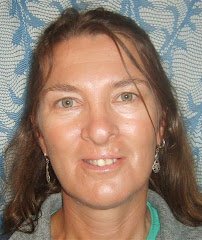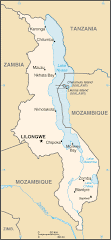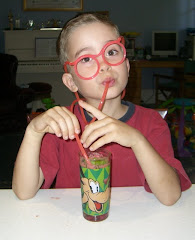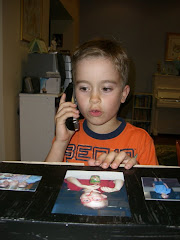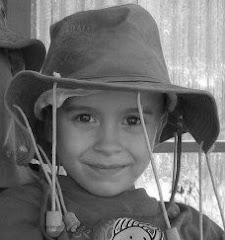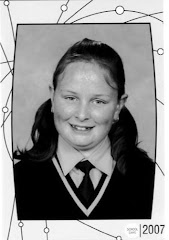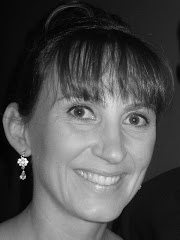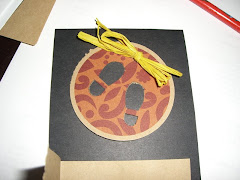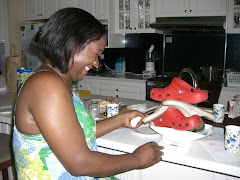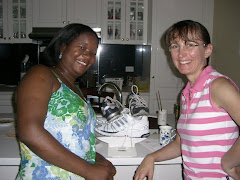tonight on TV a young man was proudly interviewed regarding his shoe collection. he has 200 pairs of shoes - designer brand, never worn. The most recent pair he paid $250 for and the next day was offered $2000 for them. His collection is valued at over $50,000 (AUS)
another woman was interviewed who has a house that has somewhere between 23 and 26 bathrooms - she isnt sure. it even has a 'gift wrapping' room. The woman is 'downsizing' to a modest condominium worth $70 million (US).
I wonder if she would mind using her 'gift wrapping ' room to wrap the $50,000 dollar shoe collection and freight it ( plus the other 2000 pairs) to Makuluni for us!
Tuesday, March 31, 2009
Sunday, March 29, 2009
message from Jack McConnell, the British Prime Minister's Peace Envoy to Africa
" This week the world is at a crossroads. We have a simple if stark choice. The rich countries can huddle together, protecting only their own, or we can use this crisis as a catalyst to begin building a new economic order, one where all humans are equal".
('Seize this opportunity to start treating Africans as equals', http://nyasatimes.com, accessed 29th March 2009)
('Seize this opportunity to start treating Africans as equals', http://nyasatimes.com, accessed 29th March 2009)
Saturday, March 28, 2009
President Obama talks about the effect of the 'global financial crisis on developing countries
last week in Adelaide's Advertiser newspaper was printed a comment by President Obama regarding the global impact of the financial crisis. He reminded us that whilst the financial squeeze affects those of us in the developed world, developing countries as a result are also being squeezed. It is hard to imagine how much squeezing can go on when human beings are already so affected. No doubt it will be the poorest of the poor who again miss out as governments battle through the international impact.
The cost of freight of the shoes is undoubtedly our biggest challenge and there is also no doubt in my mind that as belts are tightened around the world, many who would usually be able and prepared to share that little bit of 'extra cash' are seeing that extra cash vanish to prop up their own survival. A work colleague of mine told the story of having collected a number of goods for donation to 3rd world countries but in the end had to give up on the plan as the costs were 'too expensive'. i wonder how much 'goodwill' is being kept on Australian shores becuase the cost is just too great? For me, this sad fact heightens the imperative that those who can, MUST now keep to our conviction that human life is valuable no matter where destiny dictated the place of birth. The global community has a serious responsibility to ensure that wherever we are, we continue to reach out to others less fortunately situated, to support and embrace our fellow humanity.
The cost of freight of the shoes is undoubtedly our biggest challenge and there is also no doubt in my mind that as belts are tightened around the world, many who would usually be able and prepared to share that little bit of 'extra cash' are seeing that extra cash vanish to prop up their own survival. A work colleague of mine told the story of having collected a number of goods for donation to 3rd world countries but in the end had to give up on the plan as the costs were 'too expensive'. i wonder how much 'goodwill' is being kept on Australian shores becuase the cost is just too great? For me, this sad fact heightens the imperative that those who can, MUST now keep to our conviction that human life is valuable no matter where destiny dictated the place of birth. The global community has a serious responsibility to ensure that wherever we are, we continue to reach out to others less fortunately situated, to support and embrace our fellow humanity.
google earth locates the village of Makuluni
this is unbelievable! the other day virginia and i headed down to marion to look for table decorations, room decorations etc for the dinner - now only 5 sleeps away. Mid conversation over coffee (again! Seems this is when our best work is done) virginia tells me that she has been able to locate and see not only the village of Makuluni but her mother's and uncle's houses also using Google Earth! Although not 'listed', after locating the Mulanje district and aware of the direction to travel, the village appeared! So if the coordinates are possible to locate, i will put those details here as well. This just reinforces how close we actually are - the children of Makuluni would be astonished to know that their little village can actually be 'seen' by children on the opposite side of the world!!! They are well and truly on the map, not just of our hearts and minds but via satellite!
Wednesday, March 25, 2009
the countdown is on...9 days to go
Our dinner is just around the corner. At the moment we are trying to establish just how to set up the tables so that people are seated according to their "needs" - if you have a weak bladder you will need to sit near the far end of the living room because in a rush there is no way you will be able to clamber over everyone else to get anywhere "in time". Tables have been borrowed from family and neighbours, chairs also, which will make it feel like Christmas Day all over again as we perch precariously on whatever is available - in our family it was always the piano stool that served as the 'spare' chair. Mum has found some fabric at the store which may (or may not) be the same green as appears on the flag on Malawi - which according to karen's pictorial sources is 'somewhere between a teal green and a dark bottle green/almost black' and will help to decorate the room. We are pooling collective crockery resources as well as candles/candlesticks and recipes!!
i have to say that the memory and sight of the delivery of over 1000 pairs of shoes last weekend was overwhelming and is going to be a point of discussion for months to come, i am sure. We have to give a heartfelt thank you to Shoe- pal 2 and her parents, Leeanne and Andrew for their support, but also to the Lobethal Lutheran church congregation who have embraced the project, having not ever met Virginia or myself but trusting that their gifts would be gratefully accepted and entrusting us with the extraordinary result of their dedication to making the world a better place in whatever way they can.
One of the classes at St Mark's school at Mt Barker, along with their teacher are studying about Mozambique at present - Malawi is cradled almost completely within Mozmbique whilst remaining a country in its own right. This teacher has shared a firm committment to involve the class in the shoe raising project as well as expressing a keen interest in working with us on the 'freight' solution.
St Andrew's school at Walkerville is also supporting us by considering ways in which the students might be able to engage with the project while learning more about others and sharing with others to promote friendship and goodwill.
Unley Park Baptist is supporting the venture also and we continue to be amazed at the way the project is weaving around the community, simply by word of mouth. Very quietly, word is getting around and poeple are asking how they can help out, not just now but also for future projects (!!).
There have been a few postings this week that have moved me deeply. If you would like to share them, check out 'in retrospect' and also 'recipe for disaster...'
And to nanny and papa in Tassie: Virginia, Poni and I will be over in July to briefly show Virginia another side of Australia before she leaves and hopefully by then our (john's and mine) two gorgeous nieces will have taught nanny and papa a bit more about the blog and might even have logged on as followers!
i have to say that the memory and sight of the delivery of over 1000 pairs of shoes last weekend was overwhelming and is going to be a point of discussion for months to come, i am sure. We have to give a heartfelt thank you to Shoe- pal 2 and her parents, Leeanne and Andrew for their support, but also to the Lobethal Lutheran church congregation who have embraced the project, having not ever met Virginia or myself but trusting that their gifts would be gratefully accepted and entrusting us with the extraordinary result of their dedication to making the world a better place in whatever way they can.
One of the classes at St Mark's school at Mt Barker, along with their teacher are studying about Mozambique at present - Malawi is cradled almost completely within Mozmbique whilst remaining a country in its own right. This teacher has shared a firm committment to involve the class in the shoe raising project as well as expressing a keen interest in working with us on the 'freight' solution.
St Andrew's school at Walkerville is also supporting us by considering ways in which the students might be able to engage with the project while learning more about others and sharing with others to promote friendship and goodwill.
Unley Park Baptist is supporting the venture also and we continue to be amazed at the way the project is weaving around the community, simply by word of mouth. Very quietly, word is getting around and poeple are asking how they can help out, not just now but also for future projects (!!).
There have been a few postings this week that have moved me deeply. If you would like to share them, check out 'in retrospect' and also 'recipe for disaster...'
And to nanny and papa in Tassie: Virginia, Poni and I will be over in July to briefly show Virginia another side of Australia before she leaves and hopefully by then our (john's and mine) two gorgeous nieces will have taught nanny and papa a bit more about the blog and might even have logged on as followers!
Tuesday, March 17, 2009
recipe for disaster? i don't think so...!
we have now received advice from the 'caterer' regarding the ingredients we need to pick up before the 'feast'! Those who know Poni will recognise that her 'attention to detail' has not waned since she left adelaide - still as precise as ever...
- rice
- goat meat ( grams?kilos? whole beasts?)
- vegeta
- red beans (cans) (catering size cans, 250g cans??)
- coconut milk (about five cans) ( this is good poni, this i can manage)
- chinese broccoli ( kale?)
- filo pastry ( for samosas? will spring roll wrappers do??)
- carrots
- potatoes
- peas
- minced meat
- onions - lots ( buy about a 10kg bag)
- garlic ( lots)
- coriander ( lots and fresh)
- chicken maryland fillets
- canned tomatoes (lots too)
- chicken wingettes
- 2 dozen eggs ( thank you - these quantities i understand!)
Monday, March 16, 2009
the african feast
This dinner was the brain child of karen, who last year held a cocktail party to raise funds in support of the Watoto foundation (based in Uganda, i believe, but will confirm that - actually, Tanzania i have discovered) and their work to provide homes and shelter for children who had escaped the trauma after capture - and then escape -from their role as child soldiers.
the plan is to hold a traditional African meal, inviting guests who would contribute via donation the equivalent of what they would usually spend on an evening out at dinner. Poni, a very precious Sudanese friend who lives in Melbourne, offered to come along to lead the cooking, with Virginia and I 'helping out'!! Jinny and I spent a weekend in Melbourne in September with Poni and her housemates and had a fabulous meal which we suggested Poni could replicate for us!!
And so the date is set for the 3rd April 2009. As you can see, karen has done a brilliant job on the invitations ( partly decorated with thanks to some cheap cards found at IKEA providing the embellishments) and the menu is taking shape. Poni flies in on the Thursday, the plan is for a trip to the central market friday morning, a day of preparation and a fabulous fun evening!
All going well, we hope to replicate the night down south with potential guests already putting their names down for the event - date yet to be decided - lets get one under our belt first!!!
the plan is to hold a traditional African meal, inviting guests who would contribute via donation the equivalent of what they would usually spend on an evening out at dinner. Poni, a very precious Sudanese friend who lives in Melbourne, offered to come along to lead the cooking, with Virginia and I 'helping out'!! Jinny and I spent a weekend in Melbourne in September with Poni and her housemates and had a fabulous meal which we suggested Poni could replicate for us!!
And so the date is set for the 3rd April 2009. As you can see, karen has done a brilliant job on the invitations ( partly decorated with thanks to some cheap cards found at IKEA providing the embellishments) and the menu is taking shape. Poni flies in on the Thursday, the plan is for a trip to the central market friday morning, a day of preparation and a fabulous fun evening!
All going well, we hope to replicate the night down south with potential guests already putting their names down for the event - date yet to be decided - lets get one under our belt first!!!
http://www.watotofoundation.nl
http://www.dorindahafner.com
http://www.dorindahafner.com
( this website provides information regarding Dorinda Hafner's charity, Australian Sponsorship 4 African Kids)
are we on the right track?
virginia and i have certainly considered a number of options over the past few months and have spent time bouncing ideas around with our fellow 'activists'! For the benefit of others, it might be worth mapping out a few of our options and thoughts regarding the possibilities.
1. would it be more economical to simply raise the cash and arrange to purchase the shoes in Malawi? Not only would this cut out the freight issue but would also contribute to the Malawi economy.
2. what was the price of a pair of secondhand shoes in Malawi or would it be better to go for new shoes in Malawi?
3. if freighting, would it be better by air or surface mail and how on earth was this sort of thing arranged?? what companies do this type of work and what costs are involved? customs? quarrantine?
We certainly considered purchasing shoes in Malawi. The options included new shoes and secondhand shoes. After discussion with a few individuals, the feeling was that the quality of new shoes purchased in Malawi was probably not that high and would not last well long term. Secondhand shoes could possibily be purchased in "bulk" before hitting the markets, and would probably be of a better , more sturdy quality. The point we kept returning to was that many people were handpicking shoes from their wardrobe specifically for this project and not necessarily their most worn out ones. In this way, the shoes were a physical gift, specifically chosen for the people of the village and represented the 'friendship' aspect and desire to reach out from homes in australia to the village itself.
Shoe-pal 2 was working hard with her mum to spread the word about the collecting and results were being seen on a significant scale.
Shoe-pal 1 was negotiating with his teachers and making progress in leaps and bounds regarding the collecting of shoes in his area.
At this point we decided to continue the physical collection and not restrain the process - when we had reached the cap of the numbers we would send, the rest would be converted into currency to fund the freight - if the shoe supply is ongoing, we already have a few more projects in mind. Car boot sales and markets seemed the most likely way to go to do this and so we decided to continue as we were for the time being.
1. would it be more economical to simply raise the cash and arrange to purchase the shoes in Malawi? Not only would this cut out the freight issue but would also contribute to the Malawi economy.
2. what was the price of a pair of secondhand shoes in Malawi or would it be better to go for new shoes in Malawi?
3. if freighting, would it be better by air or surface mail and how on earth was this sort of thing arranged?? what companies do this type of work and what costs are involved? customs? quarrantine?
We certainly considered purchasing shoes in Malawi. The options included new shoes and secondhand shoes. After discussion with a few individuals, the feeling was that the quality of new shoes purchased in Malawi was probably not that high and would not last well long term. Secondhand shoes could possibily be purchased in "bulk" before hitting the markets, and would probably be of a better , more sturdy quality. The point we kept returning to was that many people were handpicking shoes from their wardrobe specifically for this project and not necessarily their most worn out ones. In this way, the shoes were a physical gift, specifically chosen for the people of the village and represented the 'friendship' aspect and desire to reach out from homes in australia to the village itself.
Shoe-pal 2 was working hard with her mum to spread the word about the collecting and results were being seen on a significant scale.
Shoe-pal 1 was negotiating with his teachers and making progress in leaps and bounds regarding the collecting of shoes in his area.
At this point we decided to continue the physical collection and not restrain the process - when we had reached the cap of the numbers we would send, the rest would be converted into currency to fund the freight - if the shoe supply is ongoing, we already have a few more projects in mind. Car boot sales and markets seemed the most likely way to go to do this and so we decided to continue as we were for the time being.
Sunday, March 15, 2009
how to 'freight-raise'?
The shoes were starting to 'tip-toe' (or rather 'race') through the doors! Students at Flinders University School of Nursing and Midwifery had taken up the challenge in the last two weeks of the semester and pairs of shoes were starting to come from all directions. They were talking to friends who were talking to friends and the staff of the nursing skills laboratory were kindly and patiently tucking the shoes away for me to collect each time i was up at the university.
it seems that fright is the biggest challenge for all those who tried this type of venture. we have been put in touch with a church mission organisation that freighted shoes collected in new south wales but the USA groups do theirs, obviously, from their side of the world.
we have also been connected with an adelaide university lecturer who i am told freights text books to kenya and who may have some tips regarding this issue/challenge! Certainly, at the outset of this project we had no idea the quantities we would be dealing and the generosity that has been shown by complete strangers to the cause!
Henry David Thoreau said" We must walk consciously only part way toward our goal, and then leap in the dark to our success".
And so leap we have!
...and as of today i can say that this blog has now been accessed from as far away as San Diego USA, Kiryu Japan and Padang City Indonesia!!!!!!
it seems that fright is the biggest challenge for all those who tried this type of venture. we have been put in touch with a church mission organisation that freighted shoes collected in new south wales but the USA groups do theirs, obviously, from their side of the world.
we have also been connected with an adelaide university lecturer who i am told freights text books to kenya and who may have some tips regarding this issue/challenge! Certainly, at the outset of this project we had no idea the quantities we would be dealing and the generosity that has been shown by complete strangers to the cause!
Henry David Thoreau said" We must walk consciously only part way toward our goal, and then leap in the dark to our success".
And so leap we have!
...and as of today i can say that this blog has now been accessed from as far away as San Diego USA, Kiryu Japan and Padang City Indonesia!!!!!!
Saturday, March 14, 2009
doing our homework
it was certainly looking like the project was a 'goer'.
One amazing aspect of the world wide web is its capacity to link people from all over the globe who have never met but have similar interests and aspirations. As we trawled the www, we came in contact with all sorts of projects, stories of success, courage, disappointments, frustrations and joy regarding international initiatives and adventures.
We discovered that a university in Utah, USA and a school in NSW, Australia had had great success with similar projects and a website that described its activities regarding shoe projects.
Emails exchanged between Utah, NSW and Adelaide showed that like minded individuals and groups were doing great things. The stand out feature , however, was that the contacts for both projects we accessed indicated that their role had been the collecting of shoes only, and did not include the arrrangements for transport, freight or other associated activities. Both projects were supported by not-for-profit charity organisations, making the role of the collectors exquisitely simple. Hmmm.
I am having trouble hyper linking to the actual websites but you may find these sites interesting:
One amazing aspect of the world wide web is its capacity to link people from all over the globe who have never met but have similar interests and aspirations. As we trawled the www, we came in contact with all sorts of projects, stories of success, courage, disappointments, frustrations and joy regarding international initiatives and adventures.
We discovered that a university in Utah, USA and a school in NSW, Australia had had great success with similar projects and a website that described its activities regarding shoe projects.
Emails exchanged between Utah, NSW and Adelaide showed that like minded individuals and groups were doing great things. The stand out feature , however, was that the contacts for both projects we accessed indicated that their role had been the collecting of shoes only, and did not include the arrrangements for transport, freight or other associated activities. Both projects were supported by not-for-profit charity organisations, making the role of the collectors exquisitely simple. Hmmm.
I am having trouble hyper linking to the actual websites but you may find these sites interesting:
big celebrations
In the first week of November 2008, we became a bit distracted. Barak Obama became the President Elect of the United States of America and in Virginia's words, "in our lives as black people, it is a new chapter confirming that with determination, we can achieve anything we set our eyes on".
While this was happening on the other side of the world, our lives were also being turned upside down. Karen was rushed into hospital, dreadfully unwell and with still 7 weeks to go before the birth of her 4th baby. Whilst lying in the hospital bed, with a baby name still to be chosen and the birth imminent, Karen was trying to work out how a flyer could be created for a letterbox drop in their local area informing people of the project and the 'shoe raising'!
And nephew #4 arrived weighing 1700g, gorgeous and with now idea just what a star his mum really was - but he will!
While this was happening on the other side of the world, our lives were also being turned upside down. Karen was rushed into hospital, dreadfully unwell and with still 7 weeks to go before the birth of her 4th baby. Whilst lying in the hospital bed, with a baby name still to be chosen and the birth imminent, Karen was trying to work out how a flyer could be created for a letterbox drop in their local area informing people of the project and the 'shoe raising'!
And nephew #4 arrived weighing 1700g, gorgeous and with now idea just what a star his mum really was - but he will!
the first step of 'a journey of a thousand miles' is taken.
Virginia and i were certainly not sure how the logistics of the project would evolve. Certainly people we spoke to were indicating that the resource of secondhand shoes was accessible and willingly available. In the back of many, many wardrobes, unwanted shoes and dust bunnies were happily co-habiting.
Then we heard that a 7 year old boy had been listening to our conversations and had told his mum he would like to tell his teacher about the idea and help to collect shoes at this school. Meet Shoe-pal 1!
Shoe-Pal 1 and his mum (my sister karen) sent an email to the principal of his school. In it Shoe-pal 1 told her how sad he was that children in the world were going to bed with very sore feet and could they collect shoes through the school. He would empty the boxes with his mum and could the invitation to donate shoes please go into the school newsletter?
" We are going to send the shoes to Malawi on a boat but with Virginia. We wont go."
And the answer was a resounding YES.
Then we heard that a 7 year old boy had been listening to our conversations and had told his mum he would like to tell his teacher about the idea and help to collect shoes at this school. Meet Shoe-pal 1!
Shoe-Pal 1 and his mum (my sister karen) sent an email to the principal of his school. In it Shoe-pal 1 told her how sad he was that children in the world were going to bed with very sore feet and could they collect shoes through the school. He would empty the boxes with his mum and could the invitation to donate shoes please go into the school newsletter?
" We are going to send the shoes to Malawi on a boat but with Virginia. We wont go."
And the answer was a resounding YES.
in retrospect...
It is already difficult to define the moment this project was born. It probably began when Virginia and I were discussing how 'disposable' society has become and how 'recyclable' so much of our disposable items really are - clothing and footwear we take so much for granted and discard when fashions shift are in fact luxuries many cannot afford or simply have no access to.
The issue of shoes, protective footwear and the high rate of HIV/AIDS infection as well as other complications of foot injuries for example pathogens causing ulcerations and infections which in isolated areas are difficult to treat, resulting in suffering and illness that is potentially preventable came up. I had seen photos of people from the village of Makuluni and observed that their feet were bare. I envisaged how we would manage on our property, labouring our land in bare foot while working on rocky earth with no protection from injury. Prickles, stones, snakes, blisters, spider bites, cuts and bruises as well as misery would all be part of that equation - but for some people, this is their daily way of life.
I remembered being called to see a neighbour whose son had acidentally discharged a gun in the house. The butt of the rifle had recoiled onto his foot, crushing his toe (thank goodness the bullet went directly into the ceiling!) - it was a mess. Now i wondered how people might be managing when hoes, rocks, sickles or shovels were causing similar injuries but there was no access to antibiotics, tetanus injections or even clean water to bathe the wound and no dressings to even protect the injury to allow it to begin to heal.
And then i rememberd at least 4 pairs of shoes sitting in our wardrobe that were never worn, a bit used and simply taking up space, collecting dust and-beginning to prick my conscience!
The issue of shoes, protective footwear and the high rate of HIV/AIDS infection as well as other complications of foot injuries for example pathogens causing ulcerations and infections which in isolated areas are difficult to treat, resulting in suffering and illness that is potentially preventable came up. I had seen photos of people from the village of Makuluni and observed that their feet were bare. I envisaged how we would manage on our property, labouring our land in bare foot while working on rocky earth with no protection from injury. Prickles, stones, snakes, blisters, spider bites, cuts and bruises as well as misery would all be part of that equation - but for some people, this is their daily way of life.
I remembered being called to see a neighbour whose son had acidentally discharged a gun in the house. The butt of the rifle had recoiled onto his foot, crushing his toe (thank goodness the bullet went directly into the ceiling!) - it was a mess. Now i wondered how people might be managing when hoes, rocks, sickles or shovels were causing similar injuries but there was no access to antibiotics, tetanus injections or even clean water to bathe the wound and no dressings to even protect the injury to allow it to begin to heal.
And then i rememberd at least 4 pairs of shoes sitting in our wardrobe that were never worn, a bit used and simply taking up space, collecting dust and-beginning to prick my conscience!
big news
Breaking news yesterday took our breath away!
Shoe-Pal 2 has 1000 pairs of shoes sitting in her garage!!
Behind the scenes, Shoe-pal 2 and her mum Leeanne have been quietly going about the business of sharing the project with others. For Virginia and I this is a huge reassurance that others are behind the project and so willingly showing their support and encouragement.
We thank you with all our hearts!!
Shoe-Pal 2 has 1000 pairs of shoes sitting in her garage!!
Behind the scenes, Shoe-pal 2 and her mum Leeanne have been quietly going about the business of sharing the project with others. For Virginia and I this is a huge reassurance that others are behind the project and so willingly showing their support and encouragement.
We thank you with all our hearts!!
Sunday, March 8, 2009
dedicated to Virginia's 3 gorgeous children at home...
while we tried to decide what to name the project, this poem came to light. It seemed to encompass our thoughts and motivations as well as speak to the wonder of the friendships that are developing through this project and so the theme of footprints became even stronger:
SOME PEOPLE .~by Flavia Weedn~
"Some people come into our lives and leave footprints on our hearts and we are never ever the same.
Some people come into our lives and quickly go... Some stay for a while and embrace our silent dreams.They help us become aware of the delicate winds of hope...and we discover within every human spirit there are wings yearning to fly.They help our hearts to see that the only stairway to the stars is woven with dreams...and we find ourselves unafraid to reach high.They celebrate the true essence of who we are...and have faith in all that we may become.
Some people awaken us to new and deeper realizations...for we gain insight from the passing whisper of their wisdom.Throughout our lives we are sent precious souls...meant to share our journey. However brief or lasting their stay, they remind us why we are here.To learn... to teach... to nurture... to love.
Some people come into our lives to cast a steady light upon our path and guide our every step. Their shining belief in us helps us to believe in ourselves.Some people come into our lives to teach us about love...The love that rests within ourselves. Let us reach out to others and feel the bliss of giving for love is far richer in action that it ever is in words.
Some people come into our lives and they move our souls to sing and make our spirits dance.They help us to see that everything on earth is part of the incredibility of life...and that it is always there for us to take of its joy.
Some people come into our lives and leave footprints on our hearts and we are never ever the same. "
Friday, March 6, 2009
happy birthday virginia
a quick post : today is virginia's birthday so this is to wish her a wonderful day and a big thank you for her committment to this project and the people of her home country - not to mention the friendship and love she is sharing with the Aussies around her too!
Tuesday, March 3, 2009
Virginia introduces Malawi, Mulanje and Makuluni
MALAWI
Malawi branded ‘The Warm Heart of Africa’ is one of the least developed countries in the Sub-Saharan Africa. It was declared British Protectorate in 1891 and became independent on 6th July 1964. It covers a landlocked area of 118484 square kilometres with 20 percent of it covered with water which includes Lake Malawi, which has beautiful tourist attraction fresh waters. The country has an estimated population of 13,931,831 whose 85 percent live in the rural areas with 41.7% of it living below poverty line (less than $1 per day.) Administratively, the country is divided into northern, central and southern regions (provinces) and in total, it has 28 districts. The economy is predominantly agricultural which is hugely affected by unpredictable weather which leads to droughts and floods.
The current total income per capita according to WHO (2008) is $690 making it difficult for the country to sustain itself. As a result, Malawi relies on economic assistance from international donor agencies like IMF and World Bank including individual donor nations. Its main challenges are developing a market economy, improving educational facilities; facing up to environmental problems, dealing with the problem of HIV/AIDS, and satisfying foreign donors that fiscal discipline is being tightened.
Poverty, famine and HIV/AIDS enhance one another causing the population really struggling; although we have never had wars, these problems have denied its citizens the peace they deserve. Currently, adult HIV/AIDS prevalence is at 12% down from a maximum 15% in 1997; about 1 million of the population is living with HIV/AIDS and this is leading to an estimated 60, 500 deaths annually. The pandemic has caused havoc such that by 2007, 91,000 children were living with the virus and about half a million children have been sadly orphaned by AIDS.
MULANJE
Mulanje is one of the 28 districts in Malawi and is found in the Southern Region of the country. The district takes pride in Mount Mulanje which is of the most prominent physical feature and the highest peak in the entire Southern Central Africa. The mass rises up to 3000m high and has plenty of endemic natural beauty.
The district is predominantly Christian because the British colonialists first settled in this area due to its beautiful weather. They made the district a tea growing centre and it is green and beautiful.
Mulanje is the district where I was born and raised up my mother without a father. My mother and relatives are in this district and we drive about 1 hour from the commercial city of Blantyre to the village. Malawi has various tribes of different languages and Mulanje is comprised of the Lomwe tribe who speak Lomwe. As a country, the national language is Chichewa and English is the official language. The southern region suffers a multitude of challenges including pressure on the land due to overpopulation and inadequate resources such as health facilities. Poverty is the order of the day and their prayer is, ‘God, give us our daily food’.
MAKULUNI VILLAGE
We have now narrowed down to the target community of about 1000 people which lies at the base of the beautiful Mulanje Mountain. The huts are grass-thatched and only a few are roofed with modern materials. There is one school in this village, Monjole Community Primary School which was constructed and donated by the European Union.
The villagers are all Christians belonging to different denominations, some Catholics, Protestants and Pentecostals. The community is united with social cohesion as a basic value. Children are cared for in a communal way -when one family has food, it invites children from the starving family to share. Life is so collective; however, there are changes because the expensive life is making people individualistic. Unfortunately, the village is isolated and disconnected, it is over 45km away from the nearest trading centre where one can get public transport and buy and sell goods and services. I used to walk this distance with my bag on my head to catch a bus to the boarding secondary school and university. Even now, the road is still in a very poor condition and it is scary to think how people are managing life in this village.
I have a strong belief that God lifted me up from the dust to use me; I am living my life for others and I feel satisfied. My dream is to extend this help to other disadvantaged people in my village and beyond and I am optimistic that with the support of organisations in my country, I will live to see this happening in my lifetime. I see this partnership as the genesis of great things to come in my isolated poor village; together we can make a difference.
Malawi branded ‘The Warm Heart of Africa’ is one of the least developed countries in the Sub-Saharan Africa. It was declared British Protectorate in 1891 and became independent on 6th July 1964. It covers a landlocked area of 118484 square kilometres with 20 percent of it covered with water which includes Lake Malawi, which has beautiful tourist attraction fresh waters. The country has an estimated population of 13,931,831 whose 85 percent live in the rural areas with 41.7% of it living below poverty line (less than $1 per day.) Administratively, the country is divided into northern, central and southern regions (provinces) and in total, it has 28 districts. The economy is predominantly agricultural which is hugely affected by unpredictable weather which leads to droughts and floods.
The current total income per capita according to WHO (2008) is $690 making it difficult for the country to sustain itself. As a result, Malawi relies on economic assistance from international donor agencies like IMF and World Bank including individual donor nations. Its main challenges are developing a market economy, improving educational facilities; facing up to environmental problems, dealing with the problem of HIV/AIDS, and satisfying foreign donors that fiscal discipline is being tightened.
Poverty, famine and HIV/AIDS enhance one another causing the population really struggling; although we have never had wars, these problems have denied its citizens the peace they deserve. Currently, adult HIV/AIDS prevalence is at 12% down from a maximum 15% in 1997; about 1 million of the population is living with HIV/AIDS and this is leading to an estimated 60, 500 deaths annually. The pandemic has caused havoc such that by 2007, 91,000 children were living with the virus and about half a million children have been sadly orphaned by AIDS.
MULANJE
Mulanje is one of the 28 districts in Malawi and is found in the Southern Region of the country. The district takes pride in Mount Mulanje which is of the most prominent physical feature and the highest peak in the entire Southern Central Africa. The mass rises up to 3000m high and has plenty of endemic natural beauty.
The district is predominantly Christian because the British colonialists first settled in this area due to its beautiful weather. They made the district a tea growing centre and it is green and beautiful.
Mulanje is the district where I was born and raised up my mother without a father. My mother and relatives are in this district and we drive about 1 hour from the commercial city of Blantyre to the village. Malawi has various tribes of different languages and Mulanje is comprised of the Lomwe tribe who speak Lomwe. As a country, the national language is Chichewa and English is the official language. The southern region suffers a multitude of challenges including pressure on the land due to overpopulation and inadequate resources such as health facilities. Poverty is the order of the day and their prayer is, ‘God, give us our daily food’.
MAKULUNI VILLAGE
We have now narrowed down to the target community of about 1000 people which lies at the base of the beautiful Mulanje Mountain. The huts are grass-thatched and only a few are roofed with modern materials. There is one school in this village, Monjole Community Primary School which was constructed and donated by the European Union.
The villagers are all Christians belonging to different denominations, some Catholics, Protestants and Pentecostals. The community is united with social cohesion as a basic value. Children are cared for in a communal way -when one family has food, it invites children from the starving family to share. Life is so collective; however, there are changes because the expensive life is making people individualistic. Unfortunately, the village is isolated and disconnected, it is over 45km away from the nearest trading centre where one can get public transport and buy and sell goods and services. I used to walk this distance with my bag on my head to catch a bus to the boarding secondary school and university. Even now, the road is still in a very poor condition and it is scary to think how people are managing life in this village.
I have a strong belief that God lifted me up from the dust to use me; I am living my life for others and I feel satisfied. My dream is to extend this help to other disadvantaged people in my village and beyond and I am optimistic that with the support of organisations in my country, I will live to see this happening in my lifetime. I see this partnership as the genesis of great things to come in my isolated poor village; together we can make a difference.
"are you sitting comfortably? Then I'll begin..."
Virginia and I met at the beginning of 2008 whilst undertaking masters studies in Public Health at Flinders University, SA.
Virginia came to Australia in February 2008 after being challenged by her country to compete for an AusAID scholarship. It has always been her dream to further her studies and return to Malawi to support her fellow citizens and having succeeded in the interviews came to Australia to study for a Master of Public Health: Nutrition. The course runs for a period of 18 months so Virginia returns to her beloved Malawi, husband and 3 beautiful children in July, 2009.
Virginia ia a teacher by profession attaining a Bachelor of Education degree majoring in Home Economics from the University of Malawi in 1999. Virginia went into teaching in a government high school for five years where she rose up to the postion of principal.
In 2004, Virginia joined the central government as a Principal Administrative Officer until the time when it was identified that her nutrition background was very important to 'beef up' capacity in the newly established Department of Nutrition and HIV/AIDS. This department, which is under the Office of the President and Cabinet, is mandated to facilitate nutrition requirements for people living with HIV/AIDS and other vulnerable groups like under-five children, orphans, the aged, the disabled and all those prone to nutrition related disorders such as chronic heart diseases.
Virginia will therefore return to take up this 'humble and challenging calling' (her words) where she will be in close touch with the Ministry of Health and working as a Principal Community Nutrition Officer, Virginia will be directly involved with the affected groups as well as contributing in the formulation of nutrition policy guidelines.
And so the friendship began and grew over the months as we shared experiences, dreams, hopes for a better world and the possibilities ( ...and whether there actually were any?...) that could be investigated for somehow contributing to a more socially just and equitable world. Now what? Hmmm. Not so sure, we decided! Better take a bit more notice at those lectures we decided!
Virginia came to Australia in February 2008 after being challenged by her country to compete for an AusAID scholarship. It has always been her dream to further her studies and return to Malawi to support her fellow citizens and having succeeded in the interviews came to Australia to study for a Master of Public Health: Nutrition. The course runs for a period of 18 months so Virginia returns to her beloved Malawi, husband and 3 beautiful children in July, 2009.
Virginia ia a teacher by profession attaining a Bachelor of Education degree majoring in Home Economics from the University of Malawi in 1999. Virginia went into teaching in a government high school for five years where she rose up to the postion of principal.
In 2004, Virginia joined the central government as a Principal Administrative Officer until the time when it was identified that her nutrition background was very important to 'beef up' capacity in the newly established Department of Nutrition and HIV/AIDS. This department, which is under the Office of the President and Cabinet, is mandated to facilitate nutrition requirements for people living with HIV/AIDS and other vulnerable groups like under-five children, orphans, the aged, the disabled and all those prone to nutrition related disorders such as chronic heart diseases.
Virginia will therefore return to take up this 'humble and challenging calling' (her words) where she will be in close touch with the Ministry of Health and working as a Principal Community Nutrition Officer, Virginia will be directly involved with the affected groups as well as contributing in the formulation of nutrition policy guidelines.
And so the friendship began and grew over the months as we shared experiences, dreams, hopes for a better world and the possibilities ( ...and whether there actually were any?...) that could be investigated for somehow contributing to a more socially just and equitable world. Now what? Hmmm. Not so sure, we decided! Better take a bit more notice at those lectures we decided!
Sunday, March 1, 2009
food for thought
while i collect my thoughts and begin to back track in order to bring others up to speed with activities of the past 6 months, you might like to have a look at some other sites which have significance for us. One is a broadcast which was shown on Date line (SBS) in November 2007 regarding "Africa's Deadly Brain Drain - Malawi'. This is included not to condemn or criticise those who choose to leave Malawi to pursue their medical /health care profession, but to give some insight into the conditions of the health care setting and the area of the Mulanji district. The other clip shows a Malawian gospel singer by the name of Allan Ngumuya, singing "Chimwemwe", the Chichewa ( official language of Malawi spoken by 57% of the population) word for "happiness". It is also a very popular girls name!
http://www.youtube.com/watch?v=ME-ICeVKukA ( Africa's Deadly Brain Drain - Malawi)
http://www.youtube.com/watch?v=PYLEZOV5sKg ('Chimwemwe' by Allan Ngumuya)
http://www.youtube.com/watch?v=ME-ICeVKukA ( Africa's Deadly Brain Drain - Malawi)
http://www.youtube.com/watch?v=PYLEZOV5sKg ('Chimwemwe' by Allan Ngumuya)
Subscribe to:
Comments (Atom)


















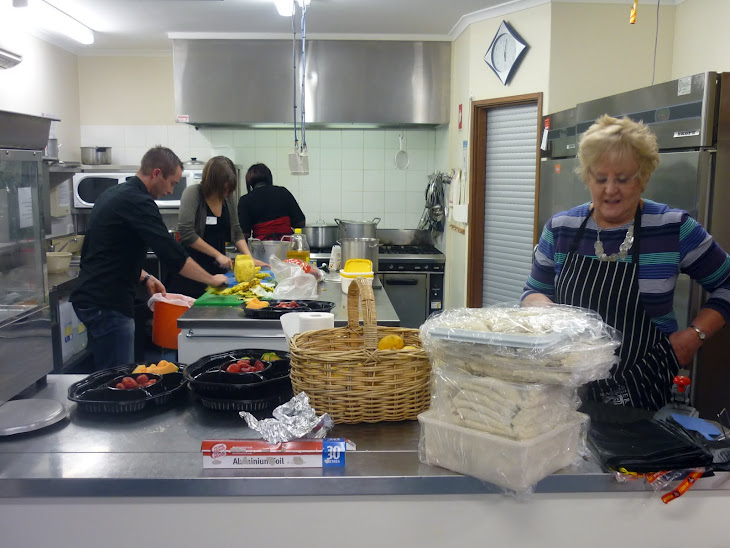





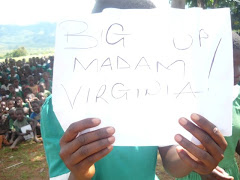.jpg)
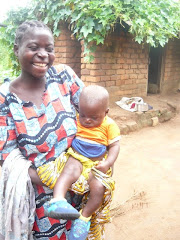.jpg)
.jpg)
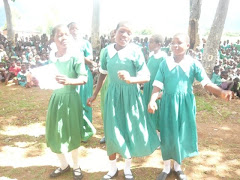.jpg)
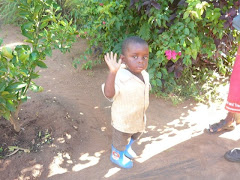.jpg)
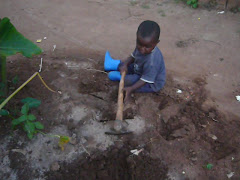
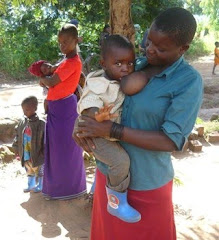
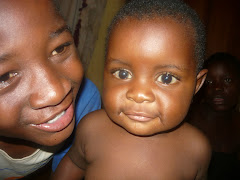
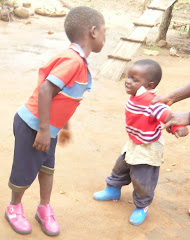
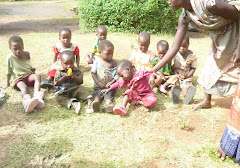.jpg)
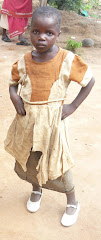.jpg)
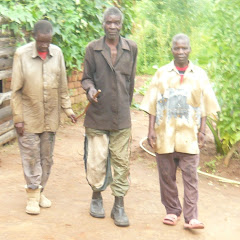.jpg)
.jpg)


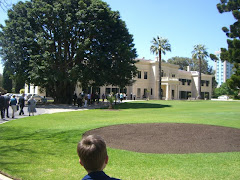+josiah+email+(3).jpg)
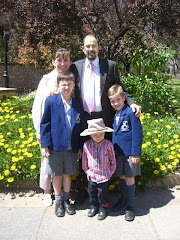+family+email+(2).jpg)
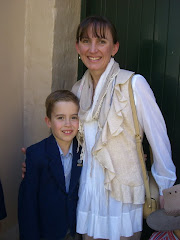+karen+and+josiah+email+(2).jpg)
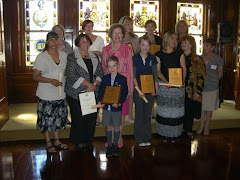+group+winners+email+(2).jpg)
+sue+denise+andy+josiah+email+(5).jpg)
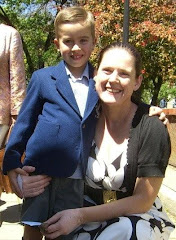+josiah+and+susie+(2)+(2).jpg)






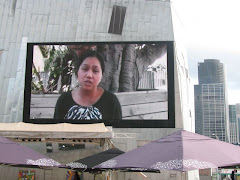.jpg)
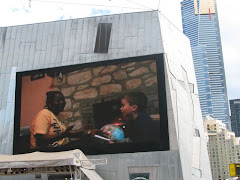.jpg)





















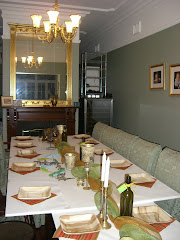





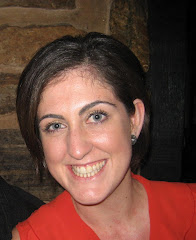
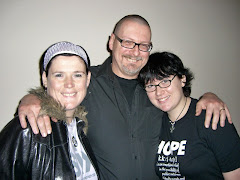

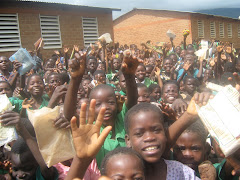





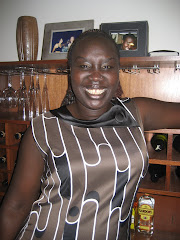

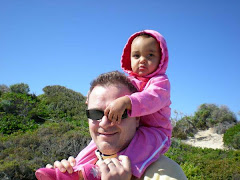+operations+manager+USA+and+dad.jpg)
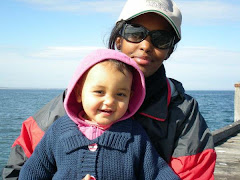+registered+nurse+and+mum.jpg)

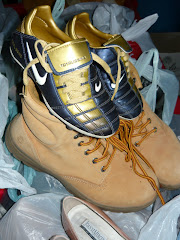
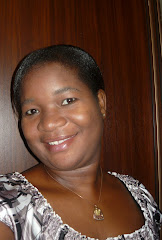
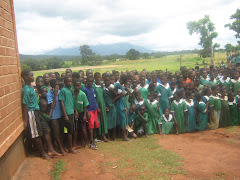
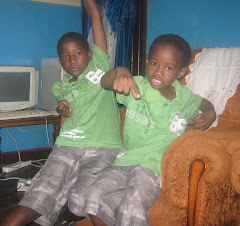.jpg)
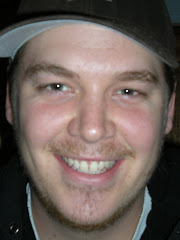.jpg)
